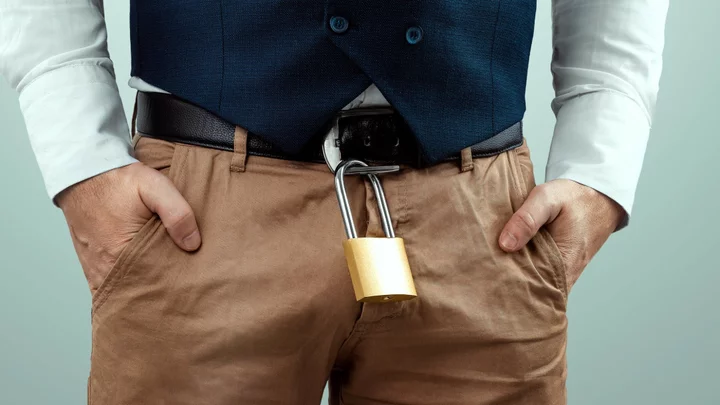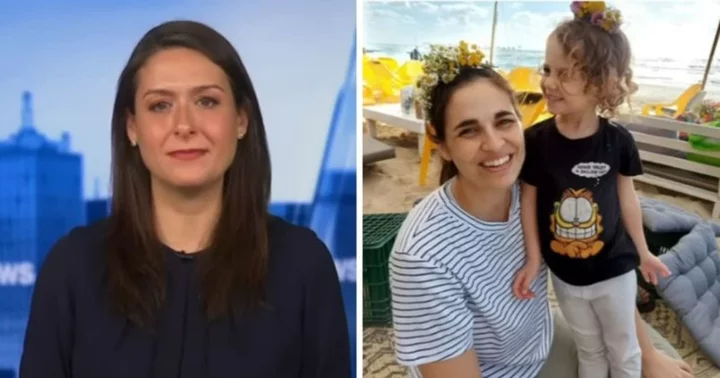
Canelo vs Charlo card: Who else is fighting tonight?
It will be undisputed vs undisputed in Las Vegas tonight, as Saul “Canelo” Alvarez defends his super-middleweight belts against Jermell Charlo. Canelo, 33, is looking for a third successful title defence in a row, having outpointed John Ryder in May and old rival Gennady Golovkin 12 months ago. FOLLOW LIVE: Canelo vs Charlo – latest fight updates and results Prior to those victories, the Mexican suffered a points defeat by Dmitry Bivol in a light-heavyweight title fight in May 2022. A week after that bout, Charlo stopped Brian Castano to retain the undisputed super-welterweight titles, after the pair fought to a draw in 2021. Charlo’s twin brother Jermall was expected to box Canelo here, but the WBC middleweight champion’s two-year absence from the ring continues instead. As such, it is the (minute-)younger of the Americans, 33, who will challenge Canelo. Here’s all you need to know. We may earn commission from some of the links in this article, but we never allow this to influence our content. This revenue helps to fund journalism across The Independent. When is the fight? The fight will take place on Saturday 30 September, at the T-Mobile Arena in Las Vegas. The main card is due to begin at 1am BST on Sunday 1 October (5pm PT, 7pm CT, 8pm ET on Saturday). Ring walks for the main event are then expected at 4am BST on Sunday (8pm PT, 10pm CT, 11pm ET on Saturday). How can I watch it? In the UK and Ireland, the event will stream live on DAZN. You can purchase a subscription to the streaming platform here. In the US, the fights will air live on Showtime pay-per-view at a cost of $84.99. If you’re travelling abroad and want to watch the event, you might need a VPN to unblock your streaming app. Our VPN round-up is here to help and includes deals on VPNs in the market. Viewers using a VPN need to make sure that they comply with any local regulations where they are and also with the terms of their service provider. Odds Canelo – 30/100 Charlo – 3/1 Draw – 18/1 Full odds via Betway. • Get all the latest boxing betting sites’ offers Full card (subject to change) Saul “Canelo” Alvarez (C) vs Jermell Charlo (WBC, WBA, WBO, IBF super-middleweight titles) Yordenis Ugas vs Mario Barrios (WBC interim welterweight title) Jesus Alejandro Ramos Jr vs Erickson Lubin (super-welterweight) Elijah Garcia vs Jose Armando Resendiz (middleweight) Frank Sanchez vs Scott Alexander (heavyweight) Gabriel Valenzuela vs Yeis Gabriel Solano (super-lightweight) Terrell Gausha vs KeAndrae Leatherwood (middleweight) Oleksandr Gvozdyk vs Isaac Rodrigues (light-heavyweight) Curmel Moton vs Ezequiel Flores (super-featherweight) Justin Viloria vs Angel Barrera (super-featherweight) Bek Nurmaganbet vs Abimbola Osundairo (super-middleweight) Abilkhan Amankul vs Joeshon James (middleweight) Read More The Independent’s pound-for-pound boxing rankings Eddie Hearn: ‘Ask someone to name three people in boxing, they’ll say: Tyson Fury, Anthony Joshua, me’ The hidden side of Jake Paul What time does Canelo vs Charlo start in UK and US tonight? How to watch Canelo vs Charlo online and on TV tonight The Independent’s pound-for-pound boxing rankings
2023-10-01 09:03

Eptura Empowers Users to Take Control of Workdays and Workspaces with Latest Archibus Version
ATLANTA--(BUSINESS WIRE)--Aug 1, 2023--
2023-08-01 20:01

Does Fall Guys Have Cross-Progression?
With the new revamp releasing today, fans have been wondering if Fall Guys has cross-progression.
1970-01-01 08:00

San Francisco police to give update on fatal shooting of driver who crashed into Chinese Consulate
San Francisco police are set to release new details and video of an incident earlier this month in which a man crashed a car into the Chinese Consulate before he was shot and killed by police
2023-10-19 13:48

Abbott, Head lead Australia to T20 sweep against South Africa
Sean Abbott took four wickets and Travis Head made 91 as Australia completed a series clean sweep with a five-wicket win in the third and final Twenty20 international against...
2023-09-03 23:52

Pete Alonso brings deadly karma on Mets: 'Throw it again!'
Off to a strong 4-1 start against the division-rival Braves last night, Pete Alonso did the unthinkable: He poked the bear and woke up a sleeping first-place team. You would think he'd know better as 'The Polar Bear.'This is the do-or-die series for the 2023 New York Mets.The ...
2023-06-07 20:58

London jury acquits Kevin Spacey of sexual assault charges on his birthday
A London jury has acquitted Kevin Spacey on sexual assault charges stemming from allegations by four men dating back 20 years
2023-07-26 22:21

CDL Major 2 Twitch Drops: How to Claim
Call of Duty League viewers can earn free rewards as they watch Stage 2 matches on Twitch.
1970-01-01 08:00

UC Davis stabbings suspect deemed not competent to stand trial, will be transferred to state hospital
The former University of California Davis student accused in a series of stabbings earlier this year is set to be transferred to a state hospital after a court-appointed psychologist deemed him not competent to stand trial.
2023-08-09 05:16

How to Get Warzone Stories Calling Cards
The original Warzone will be adding six new calling cards to celebrate the end of the current game.
1970-01-01 08:00

Bayern to repay 245,000 euros for breaking minimum wage rules
Bayern Munich have been forced to repay over 200,000 euros ($216,560) for failing to meet minimum wage requirements over a five-year period, Bavarian...
2023-06-15 17:12

VELVEETA and Compartés Launch TruffVels, an Over-the-Top, Indulgent Treat Combining Two of Life’s Greatest Pleasures
CHICAGO--(BUSINESS WIRE)--May 9, 2023--
1970-01-01 08:00
You Might Like...

Got an internet-enabled chastity device? Check your online security now.

Who is LeElle Slifer? Devastated American whose family might be slaughtered by Hamas recalls horrifying experience

The Exorcist: Believer director says 'shock value' isn't necessary for horror

Facebook faces legal setback in EU court decision on data privacy and ads

Zunino hits 2-run homer, Gaddis gets 1st win, Guardians beat White Sox 3-0 to end slide

Barcelona confirm plans for Lionel Messi tribute

On this day in history, October 16, 1923, Walt Disney Company is founded

Tristan Tate confronts Sean Strickland for calling him and his brother Andrew Tate 'trash', trolls say UFC star 'would beat them both'
